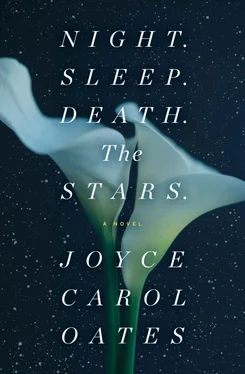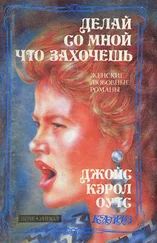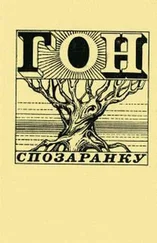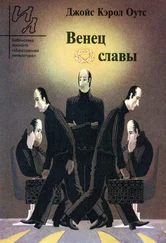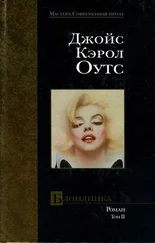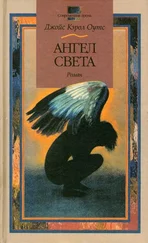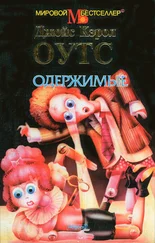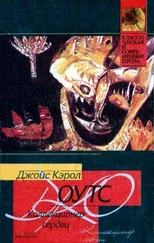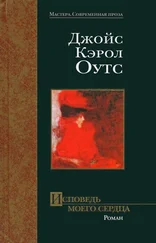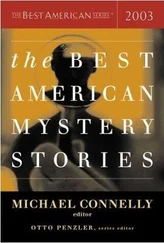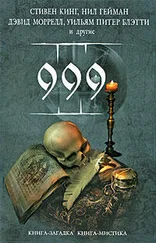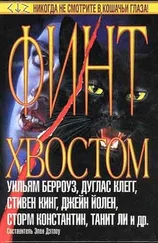It was awkward for the McClaren brothers to be alone together.
Neither could have said when they’d last been alone together in this house or anywhere.
Rare for them to think of themselves as brothers .
In their parents’ house, in the kitchen, it was impossible not to expect to hear their father’s voice. Whitey would have been surprised and pleased to see them if (possibly) somewhat mystified, at this hour.
Jesus! What the hell are you two doing here? Sit down, let me get you something to drink…
But Whitey was shrewd enough to know that his sons, who had so little in common, would hardly be together in his kitchen at this hour of the night unless something in the family had gone terribly wrong.
Thom was drinking ale, out of the bottle. Whitey’s German ale, so bitter Thom winced as it went down. He’d found an opened jar of cashews in the cupboard.
Virgil was drinking orange juice, he’d found a carton in the refrigerator.
The silence between them was strained. Yet neither wanted to speak of their father, just yet.
Seven and a half years separated them. For Virgil, a lifetime.
If Virgil shut his eyes he could make out the shadowy, elusive figure of his elder brother Thom always in silhouette, his back to Virgil and moving away.
He’d adored his big brother, as a child. But no longer.
Now, Virgil was wary of Thom. He understood those sidelong glances, scowled greetings and mock-friendly remarks— How’s it going, Virg?
Virg wasn’t a name, wasn’t a diminutive, only just an ugly sound.
Thom had grown distant to Virgil, living now in Rochester. Virgil scarcely knew his brother’s wife and children—(two young children? three?). Casually it was said that Thom was Whitey’s “heir”—obviously, Thom would be Whitey’s successor in the family business.
(Whitey had never tried to hire Virgil to work for him. Well maybe, a long time ago, when Virgil was in high school, and Whitey had asked if he’d like to help out writing advertising copy since, it seemed, judging from published work of Virgil’s he’d seen in a student literary magazine, Virgil “had a way with words.” Fifteen, Virgil had stared at his father with a wounded look murmuring No thank you! as if Whitey had asked him to commit an outrage.)
Just a glance at Thom McClaren, tall and rangy-limbed, sandy-haired, handsome face now just perceptibly beginning to thicken, in his late thirties—(Virgil often stared, when [he believed] Thom wasn’t aware of him)—you could see that Thom was one of those persons who feels very good about himself, and his self-estimate is (largely) shared by those who gaze upon him.
So Virgil thought. A sliver of envy pierced his heart.
“HAVE SOME.I don’t want to eat these all alone”—Thom pushed the jar of cashews in Virgil’s direction.
Cashews were Whitey’s weakness. The children had laughed at their father insisting their mother hide nuts, cookies, chocolates in the kitchen in places where he couldn’t easily find them.
But when Whitey ate a handful of nuts, he’d begin coughing. That was a giveaway, Daddy’d been eating nuts…
Half-consciously the brothers were observing that something was wrong in the kitchen. Their mother was so fastidious a housekeeper, you’d never expect to find newspaper pages scattered on a counter, or dishes soaking in a sink. Especially since her children were gone and the cheerful disorder of those years was only a memory.
Thom recalled when he’d been a boy in the household and one of his duties was to sweep the kitchen floor after dinner, each night.
Another duty, to drag out the trash containers early Friday mornings.
For these tasks and a few others, Whitey had paid him ten dollars a week. But Jessalyn had always given him a little more—“Just in case you need it, Tommy.”
They’d grown up in a well-to-do household. No disguising the fact that the McClarens had money—you didn’t live in one of the beautiful old houses on Old Farm Road if you didn’t have money. Yet none of the McClaren children had felt what’s called entitled .
At least, Thom didn’t think so. Not him.
All this while, with the maddening care of one trying not to draw attention to himself, Virgil was collecting the scattered newspaper pages which he shuffled together and stuffed in the paper-recycling bin, without so much as glancing at a headline. Thom recalled with scorn how, in Virgil’s Oberlin days, and after, his hippie brother had evinced a visceral horror of what he might discover in the newspaper by accident—he’d thought it “obscene” to look upon the suffering of strangers in photographs.
Too restless to sit still Virgil rinsed the dishes in scalding-hot water and placed them in the dishwasher one by one with such exaggerated care, Thom’s patience was tested.
“Sit still! For Christ’s sake.”
Thom resented it, as his sisters did, that Virgil seemed to have become closer to their mother than any of them, in recent years. Because Virgil lived nearby, came often to the house (on his damned bicycle) when Whitey was away, probably more often than Thom and his sisters knew.
Not asking for money from Jessalyn, probably, because that wasn’t Virgil’s way, but surely accepting money from her, for that was certainly Jessalyn’s way.
D’you think Dad knows? —Beverly would ask; and Thom would say, Well. We can’t ask him.
In the darkened window above the sink Virgil saw his own, dark reflection. And beyond his shoulder his handsome, elder brother sprawled in a chair, drinking from a bottle.
The wonder of an older brother, to a younger. The adolescent male body, utterly fascinating, captivating, to the younger brother, knowing himself inadequate in every way.
Glimpsing Thom part-clothed, or naked—how Virgil had stared.
Swallowing hard. Even now. His brother’s supple, lean-muscled body. His brother’s careless grace. Wiry hairs growing in his brother’s armpits, on his chest, legs. At his groin.
His brother’s penis.
The very word, forbidden to murmur aloud even in privacy— penis.
And other, similar forbidden words, cock, dick, balls —Virgil trembled to recall the spell such words had upon him, for years.
A lifetime. If you are the younger.
As if he sensed Virgil’s thoughts Thom dared to rummage in a coat pocket for—what? A pack of cigarettes.
Dared to light a cigarette!
“Hey. C’mon. Mom will smell the smoke in the morning.”
“I’ll air out the kitchen.”
“They’ll smell it upstairs right now. Come on, Thom!”
“I said, I’ll air out the kitchen.”
“Well.” Virgil registered his displeasure with a shift of his shoulders.
“Well, I will .”
It wasn’t like Virgil to provoke his brother. He’d had too many unpleasant consequences in the past. The lateness of the hour was a kind of unraveling.
Thom said, exhaling smoke: “Dad smokes. He still does.”
“Dad does ?”
“Nobody’s supposed to know. Especially Mom. Not as much as he used to, but at least once a day. In his office. I’ve seen the ashes.” Thom paused, for there was a kind of luxuriant satisfaction in knowing something about their father that Virgil didn’t know. If Virgil made a prissy remark about Whitey smoking, with his high blood pressure, and having had a stroke, Thom planned to spring up from his chair and smack him on the side of the head.
But Virgil was wary, and kept his distance. Chewed his lower lip in silence, preoccupied with arranging sponges on the rim of the sink.
Their mother had two (synthetic) sponges for kitchen work: one for rinsing dishes, the other for wiping counters. The former was always kept on the left, the latter on the right. Over a period of a week or two, the counter sponge was discarded, as used-up; the left-hand sponge was moved to the right, and a fresh new sponge removed from its cellophane wrapper.
Читать дальше
